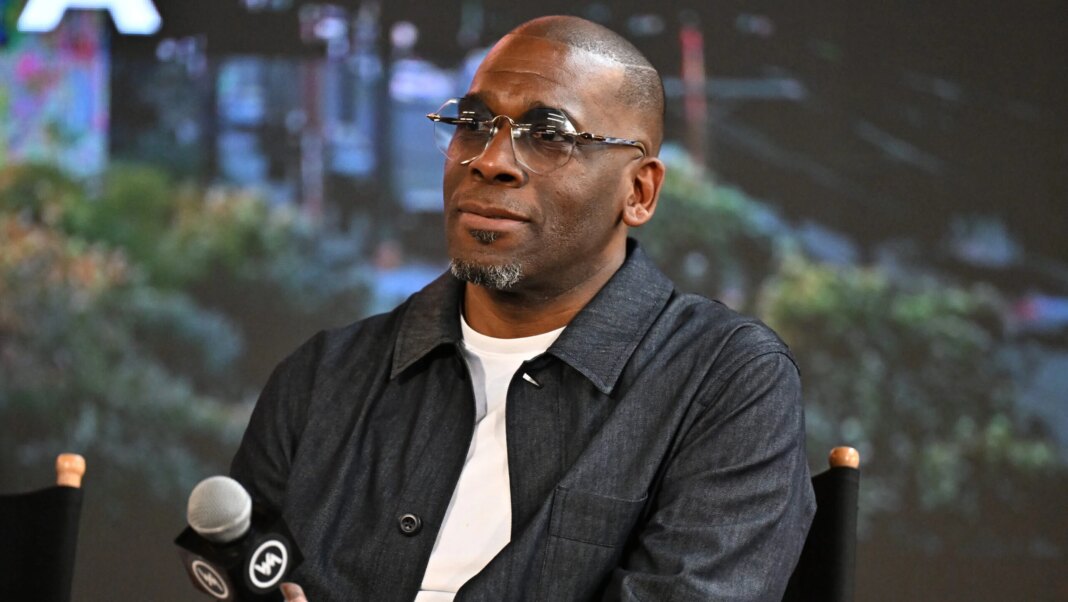The Cultural and Theological Clash Surrounding Pastor Jamal Bryant
Pastor Jamal Bryant is no stranger to controversy, and his recent remarks have reignited significant discourse surrounding race, religion, and morality in America. Following the controversial death of conservative commentator Charlie Kirk, Bryant’s sermon drew a line in the cultural sand, raising questions about the intersection of faith and racial identity.
Context of the Dispute
The conflict began after Bryant delivered a sermon addressing the reactions from some within the Black church community to Kirk’s untimely passing. In his speech, he expressed his disapproval of honoring Kirk, a figure often associated with white supremacy. He articulated, “I’m concerned about all of these Negro preachers who’ve been… talking about that this man that was killed was the answer to Christ in the earth.” This strong stance quickly escalated into accusations of “ethnic idolatry” leveled against him.
The Reaction to Bryant’s Comments
Bryant’s comments opened a floodgate of reactions online, and opinions were sharply divided. While some applauded him for standing against the glorification of Kirk, others railed against what they perceived as a racially charged, divisive rhetoric. The sermon not only reignited the debate over how Black leaders in the church address race, but it also caused a stir among conservative circles, igniting outrage over his claims.
Voices of Dissent and Support
One notable response came from Millicent Sedra, another preacher who challenged Bryant’s perspective. Sedra quoted his words directly and took issue with what she saw as his focus on race over “truth.” She charged him with “ethnic idolatry,” stating, “You are more concerned with the color of people’s skin than you are with the truth that they speak.” This perspective suggests a broader concern about the role race plays in interpreting faith, especially from within predominantly Black congregations.
Sedra’s message garnered attention for its passionate condemnation of what she views as the exclusionary language Bryant employed. This kind of back-and-forth highlights the multi-layered complexities within Christian discourse on race, identity, and justice.
The Broader Conversation on Race and Christianity
The entire incident serves as a microcosm of the larger conversation regarding race and religion in the United States. Controversy is often sparked when a Black pastor like Bryant speaks to racial injustices. Bryant himself highlighted this unsettling trend in a subsequent video reposted on social media, calling attention to the apparent double standard. In his view, when a Black pastor addresses issues affecting his community, he is accused of loyalty to “tribalism,” while white pastors often disseminate nationalist rhetoric without facing similar scrutiny.
The Role of Social Media and Engagement
Social media has played a pivotal role in how these discussions unfold. Platforms like Instagram and TikTok have allowed voices—both supportive and oppositional—to engage in real-time discussions and debates. For example, content creator @ellieunbound succinctly articulated the unease surrounding the frequency of calls for repentance whenever race enters biblical conversations. Her assertions stress that the narrative surrounding race and church is often controlled or manipulated to maintain comfort for those who have historically held the power.
Advocating for Freedom of Speech
Bryant responded to the backlash on social media by advocating for freedom of speech, reaffirming that embracing one’s identity does not inherently constitute idolatry. He argued, “Disagreeing with a podcaster doesn’t make you a false prophet and embracing how you were made in the image of God doesn’t make you idolatrous.” His reply not only defended his position but also pointed to a broader issue surrounding freedom of expression in religious settings.
The Divisions in American Christianity
At the heart of this conflict lies a growing divide within American Christianity—a space where Black preachers are often pressured to downplay race, while white preachers who espouse nationalist viewpoints receive far less scrutiny. This imbalance, as articulated by Bryant and his supporters, underscores a prevailing tension where the voices of marginalized communities are often stifled in favor of a more palatable narrative for the majority.
The ongoing discourse surrounding Pastor Jamal Bryant and his messages highlights critical themes of race, power, and belief within American faith communities—illustrating a complex landscape in which identity and spiritual life continuously intersect. The debate reveals not only the fractures in contemporary American Christianity but also the fervent desire for a more inclusive dialogue that embraces the unique experiences of all believers.



